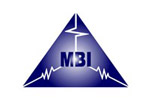Masters student (m/f/d)
The Max-Born Institute for Nonlinear Optics and Short Pulse Spectroscopy (MBI) conducts basic research in the field of nonlinear optics and ultrafast dynamics arising from the interaction of light with matter and pursues applications that emerge from this research. It develops and uses ultrafast and ultra-intense lasers and laser-riven short-pulse light sources in a broad spectral range in combination with methods of nonlinear spectroscopy. The spectral range includes in particular XUV radiation and soft x-rays, where experiments at in-house sources are complemented with the use of accelerator driven sources such as free electron x-ray lasers.
With its research, MBI fulfils a national mission and is an integral part of the international scientific community.
The Max-Born-Institute invites applications for a Masters student (m/f/d) in ultrafast electron diffraction imaging of photochemical reactions.
Masters student (m/f/d)
Part Time
Max-Born-Straße 2A, 12489 Berlin, Deutschland
Without Professional Experience
9/14/23
Ihr Aufgabengebiet:
Light can initiate numerous chemical reactions, which may be beneficial (e.g., in the process of vision) or harmful (e.g., causing mutations which may lead to cancer). So far, knowledge of the reaction mechanisms in these processes is still not known. The evolution and outcome of these photo-induced processes is determined by sub-Ångström changes in the position of atoms within an excited molecular or lattice structure evolving on a timescale as fast as a few hundred femtoseconds (fs). Ultrafast electron diffraction (UED) is often employed to directly image the structural dynamics of photo-induced picosecond gas-phase reactions in real-time with picometre and <300-fs spatiotemporal resolution. However, the temporal resolution of state-of-the-art UED setups, often operating at <1-kHz, is insufficient to time-resolve rapidly evolving photo-induced processes (e.g., <350-fs complete timescale of photoisomerization which plays a crucial role in vision). The limited temporal resolution is due to the severe space-charge dispersion experienced in electron pulses containing 10^4 to 10^5 electrons. Here, we present a new 100-kHz UED setup recently built at MBI that will be capable of performing time-resolved measurements of photochemical reactions with sub-100-fs temporal resolution, going beyond the current state-of-the-art in UED. This is made possible by operating below the severe space-charge dispersion regime using electron pulses containing very few electrons (<10^3) but with sufficient electron flux (>10^7 electrons/s) thanks to the high repetition rate of our system. Preliminary results from the commissioning of the initial stages of this 100-kHz UED setup demonstrate the capability to directly retrieve atomic structure information with picometre resolution. Our current steps include the implementation of electron temporal compression using an external radiofrequency (RF) field, and correction of the RF-laser time-of-arrival jitter, making our set-up a unique UED source in the world. This will then lead to a series of optical-pump and electron-diffraction-probe measurements of transient nuclear/lattice dynamics in solid-state thin films/gas-phase molecular samples.
Ihr Profil:
We are looking for a highly motivated Master student (m/f/d) holding a Bachelor degree in physics or a related field. Candidates must have a strong background in non-linear optics and ultrafast laser physics. Very good verbal and written communications skills in English are required.
Offer:
The student will be given in-depth training on and will contribute to operating the optical set-up used to generate electron and optical pump pulses, working with ultrahigh vacuum equipment, using RF electronics and equipment as part of performing electron compression with an RF field, and performing time-resolved pump-probe measurements of fast photochemical reactions. Moreover, the student will also be trained on how to analyze transient electron diffraction patterns to retrieve the lattice (nuclear) structure of photoexcited condensed matter samples (gas-phase molecules), including simulating electron diffraction patterns of various different structures.
We are offering Master projects on a regular basis, on which you work in close collaboration with PhD students and experienced scientists. Official supervision will be given by Dr. Kasra Amini at MBI with affiliation to the physics department of Freie Universität Berlin. The position is open until filled. For further information, please send inquires to amini(at)mbi-berlin.de.
If equally qualified, severely handicapped persons are given preference. MBI is an equal-opportunity employer and places particular emphasis on fostering career opportunities for women. Qualified women are therefore strongly encouraged to apply. MBI supports the reconcilability of family and working life and is certified by the audit work and family (audit berufundfamilie) as a family-friendly employer. Please use the button "Apply online" and upload your application with curriculum vitae and certificates electronically via the MBI online recruiting platform at https://mbi-berlin.de/career.
Apply Online
Imprint | Privacy Policy
Max-Born-Institut für Nichtlineare Optik und Kurzzeitspektroskopie (MBI)
Max-Born-Str. 2A
12489 Berlin

Firma
Max-Born-Institut für Nichtlineare Optik und Kurzzeitspektroskopie (MBI)
Ort
Berlin
Veröffentlicht am
13.02.2024
Adresse
Max-Born-Institut für Nichtlineare Optik und Kurzzeitspektroskopie (MBI)
Max-Born-Str. 2A
12489 Berlin
Telefon
+49 30 6392 1505
Fax
+49 30 6392 1509
